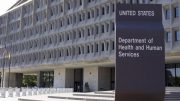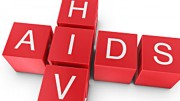Boston’s STD rates above national averages
BOSTON—As part of the national GYT: Get Yourself Tested campaign, Planned Parenthood League of Massachusetts (PPLM) is encouraging young people to take control of their sexual health and get tested for STDs during April’s STD Awareness Month. This annual campaign, supported by theAmerican College Health Association, Kaiser Family Foundation, National Coalition of STD Directors, MTV, and Planned Parenthood Federation of America, is aimed at raising STD awareness, advocating for regular STD testing and open communication around testing, and safer sex.
“Getting tested for STDs is a commonsense strategy for staying healthy and taking care of your body—like brushing your teeth and exercising regularly,” said Dr. Jennifer Childs-Roshak, president and CEO of PPLM. “Safety and pleasure go together. Knowing your status is one of the most important things you can do to protect your health and take control of your sex life—and it’s easier than ever before.”
Efforts promoting testing, treatment, and education are especially critical in Boston, where rates of chlamydia, syphilis, and gonorrhea are all higher than national rates. Data from the Boston Public Health Commission show that in 2014, chlamydia was the most commonly reported communicable disease in Boston and that its incidence rate was 31 percent higher than the 2013 national rate reported by the Centers for Disease Control and Prevention. This rate was high in Mattapan and Dorchester, according to the Commission’s data, and young women of color were particularly affected.
In the same years, Boston’s gonorrhea rate was 1.4 times as high as the national rate, and was particularly high among young men of color. The South End experienced the highest rate of gonorrhea, and Mattapan, Roxbury and Dorchester also had high incidence rates. In 2013, Boston’s syphilis rate was nearly four times the 2012 national rate, according to the Commission. That rate was particularly high among men who have sex with men and in the South End, Dorchester, Jamaica Plain and Roslindale neighborhoods.
As this data shows, some communities are disproportionately affected by STDs. STDs impact young people under the age of 25 the hardest. Black and Latino Boston residents accounted for a disproportionate percent of new HIV diagnoses in 2014. Collectively, these statistics reinforce the important role that comprehensive sex education and improved access to testing and treatment play in combatting health care disparities.
“Access to quality health care and information is essential for all people to realize their fullest potential. The fact is our health shouldn’t depend on who we are or where we live,” Dr. Childs-Roshak said. “Planned Parenthood is working to achieve health equity for all and part of that work is making sure young people know they can turn to our health centers for confidential, nonjudgmental care. That includes regular STD testing.”
One in two sexually active people in the U.S. will get an STD at some point—and most won’t know it because many STDs have no symptoms. The only way to know for sure is by getting tested, which is generally quick, simple, and painless.
“Planned Parenthood is here to help you stay safe and healthy, and we’re proud to be part of a campaign that makes people comfortable asking to get tested,” continued Dr. Childs-Roshak. “We offer confidential STD testing, treatment, education, and information to help you take charge of your sexual health.”
STD prevention is a core part of Planned Parenthood’s health services and education efforts. Every year, Planned Parenthood health centers provide 4.2 million tests and treatments for sexually transmitted infections, including HIV. And in 2014, Planned Parenthood served a greater percentage of men than ever before—primarily for STD testing.
Planned Parenthood provides education programs in schools and communities and outreach to 1.5 million people every year —including sex education, peer education, parent workshops, and support groups for LGBTQ teens.
Planned Parenthood League of Massachusetts (PPLM) is the largest freestanding reproductive health care provider and advocate in the Commonwealth, providing sexual and reproductive health care to more than 30,000 patients per year. PPLM provides a wide range of preventive health care services including lifesaving cancer screenings, birth control, STD testing and treatment as well as abortion services. We ensure that women have accurate information about all of their options. For 88 years, PPLM has protected and promoted sexual and reproductive health and rights through clinical services, education and advocacy. For more information, visit www.pplm.org.







